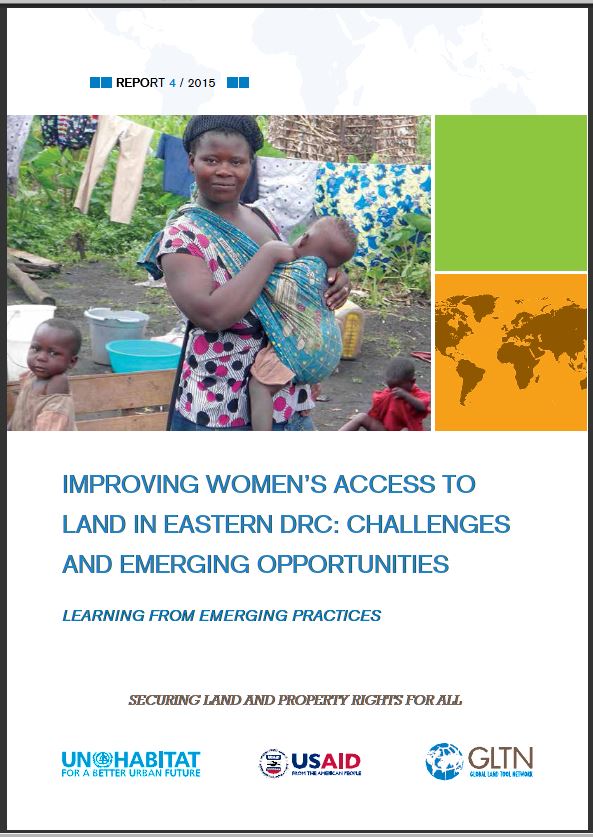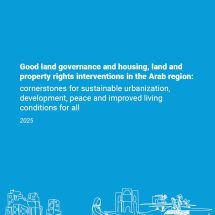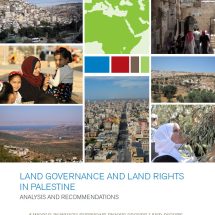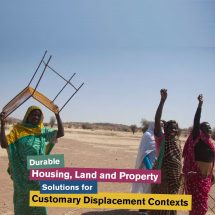Learning from emerging practices

Learning from emerging practices
Access to land and natural resources is essential to social and economic development, providing housing, food and livelihood security. In eastern Democratic Republic of Congo, rural and indigenous populations exist in tenuous tenure security situations, and the reasons for conflicts over land are many and varied, ranging from natural resource exploitation to ethnic conflict to state weakness. Over two decades of armed conflict has caused massive displacement, severely impacting women and children many of whom are widows and orphans.
However, long before these stressors, customary land practices had systematically discriminated against women, denying them control and security in the land that they work for their husbands and fathers. This publication explores the challenges faced by women in their struggle to gain access and control to land despite government efforts
Authors: Juliette Syn, Christol Paluku Mastaki
Contributors: Oumar Sylla, Malam Kandine Adam, Dady Mukeba Misumba, Michel Mirali Mushi, Jean Emmanuel Mihigo, Grévy-Jacob Kambale Kavene, Axel Kitoga, Jean-Claude Ganywamulume, José Mokbondo, Ambroise Mumbere, Pascal Chikala, Michel Mapendo, Désiré Minzori, Justin Selemani, Augustin Blaise Mapendo, Benoit Tambwe Likondo, Honoré Banyene, Emmanuel Nziwa, Patrick Kyanza
Sponsors: United States Agency for International Development (USAID), Department for International Development (DFID), UN Department of Peacekeeping Operations (DPKO)














